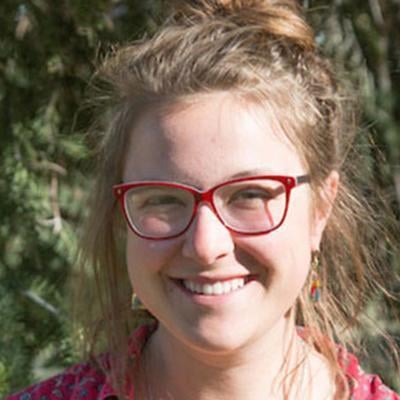

Uma Costanza
Academic Divisions
Recreation, Exercise & Sport Science DepartmentBiography
Uma Costanza of Chicago, Ill., decided she wanted to spend her life as an outdoor educator after spending summers in high school as a trail crew member in Yellowstone National Park. After completing her associate’s degree in community college, she transferred to Western upon a friend’s recommendation.
“My experience as an ROE student so far has been incredible. We focus mainly on experiential education, which makes my experience a lot different than every other student here,” Costanza said. “Of course we have lectures, but at the end of the day we’re really asked to do projects that are meaningful and reflect on our work in order to learn something.”
Costanza enjoys “anything outside,” especially backpacking, hiking, white water kayaking and hula-hooping. She quickly got involved on campus, joining the Black Student Alliance and attending several symposiums and guest lectures.
“That’s a great thing about being an ROE major. It forces you to be active outside of the classroom,” Costanza said.
Inside of the classroom, Costanza describes her professors’ abilities to impart crucial leadership and interpersonal skills.
“I feel like our skills would be difficult to teach in a typical classroom setting. It’s difficult to teach when it’s a teacher, a projector and students in the seats,” she said. “But everything is easier to understand when it’s experiential education and you have your own ‘light bulb moments.’ I think that’s something really unique to the ROE program.”
Over the summer, Costanza applied her skills while working as a Youth Conservation Corps Crew Leader in Yellowstone National Park, the place that started it all for her.
“Experiential education is all about transference and being able to use what you learn in the classroom somewhere else,” Costanza said. “We learn so many people skills, how to be around people, so that transfers super easily. We also learn empathy and compassion and how to put yourself in your clients’ shoes.”
“Our program helps you build patience. It helps you be a less judgmental person because you want to understand the experience of the other person in order to provide them with a really great experience outside,” she said.
After graduation, Costanza hopes to work for the National Park Service and other youth programs that facilitate personal growth through outdoor education.
“My end goal is to take all of my skills back to Chicago, because I think that’s where the youth really need exposure to the outdoors. I want to start an outdoor center or an orphanage that is tailored around outdoor experiences so that I can give those kids a taste of what is out there. I think that would really help heal a city that is in turmoil right now,” Costanza said.